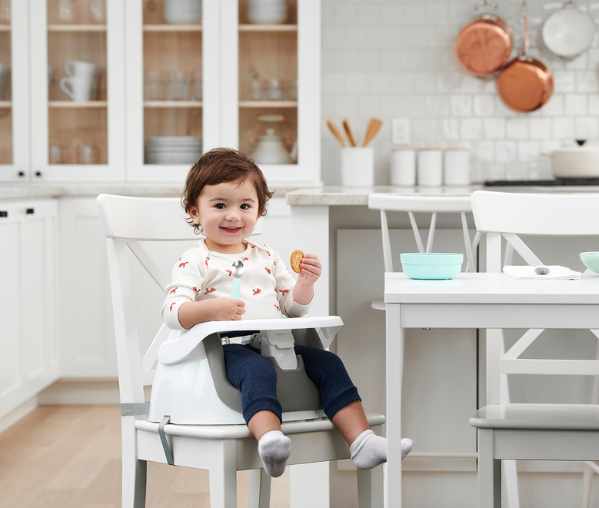
August 09, 2022
Tips for Raising Kiddos with Food Allergies
I was a food allergy kid in the 80s – you know, before having allergies was “normal”. There were no “allergen-free zones” at school, and other kids definitely looked at me weird at lunchtime. I never bought a hot lunch, and pretty much ate the same 5 foods every day. And I’m so, so thankful that my kids are growing up in a different world.
If you’re new to the world of food allergies, though, it’s still terrifying. No parent is with their child 100% of the time, and the danger of eating an allergenic food is real. If your child is newly-diagnosed with a food allergy, here are 5 tips to help you get started!
1. Educate your child, your family, and anyone else who may interact with your child. Your child should know exactly what they’re allergic to and how to avoid it. Similarly, your child should know to ask what ingredients are in a food before eating it – especially at friends’ houses, school, etc. Make sure that both your child and the adults interacting with your child know what to do in case of an allergic reaction. Need an epi-pen? Make sure your child knows where it is and how to use it. Same with your child’s teacher, or anyone else who may be supervising your child.
2. Pack alternative (allergen-free) snacks or treats for your child at special events – birthday parties, class celebrations, etc. Believe me, it stinks to be the only kid NOT eating the cupcakes at the party. But having an alternative treat – not something eaten every day – definitely softens the blow. Even better, it minimizes the risk of your child taking just a small bite because “a small bite won’t hurt anything”.
3. Grow accustomed to reading labels. According to kidswithfoodallergies.org, the most common allergens for children are dairy, eggs, wheat, soy, peanuts, and tree nuts. If you’ve never read a label before, you would NOT believe how many other foods include these ingredients. Cereals, baked goods, crackers, granola bars – these are all foods that commonly have allergens, or are processed in a plant that also processes common allergens. Your child may not have a severe enough allergy to warrant concern over what type of plant the food is processed in, but he or she also might! Make sure you know the answers to these questions.
4. Set boundaries around food with friends and family, then keep them. You will likely find that most people in your life are supportive and will respect your needs and the needs of your child. That said, I have known food-allergy parents who had the experience of an extended family member feeding their child an allergen to “prove allergies aren’t real.” It is 100% okay to ask people who come to your house NOT to bring foods that your child is allergic to. It is 100% okay to ask people not to serve foods your child is allergic to at their own homes. If you have a friend or family member who does not respect your boundaries around food, consider only interacting with them in non-food situations.
5. Focus on what your child can eat, rather than what he or she can’t eat. We live in a world where there are so many options for food alternatives. We have oat milk, soy milk, almond milk, rice flour, almond flour, coconut flour – and they are all at Target and Wal-Mart! When I was little, my mom had to a little store out of the way to get me the ONE non-dairy option they had (soy), and pay a small fortune for it. Now, options abound! And they’re everywhere! And affordable! If you don’t know where to start, start with fresh, easy foods. Start loading up on fresh fruits and vegetables. As you grow more familiar with your child’s allergies, you can start learning more recipes and alternatives that will fit your family’s needs.
Receiving a food allergy diagnosis can be terrifying, but it doesn’t have to stay that way. With a little education and support from your family and friends (or even an allergy support group!), you can relieve some of the pressure on you AND keep your kiddo safe!